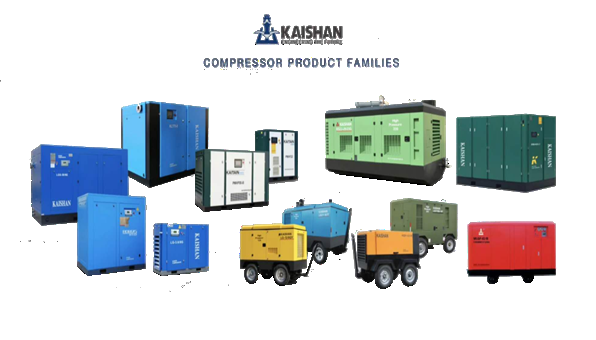When choosing the right compressor for industrial, commercial, or residential applications, two popular types often come up: scroll compressors and screw compressors. Both have unique features and applications, making them suited for different needs. In this article, we will compare the advantages and disadvantages of each type, helping you make an informed decision.
What is a Scroll Compressor?
A scroll compressor consists of two interleaving spiral-shaped components: a fixed scroll and a moving scroll. The moving scroll orbits around the fixed one, compressing the refrigerant gas into a smaller volume as it moves through the spiral. Scroll compressors are commonly used in refrigeration, HVAC systems, and smaller industrial applications.
Advantages of Scroll Compressors:
- Efficiency: Scroll compressors are highly efficient at lower capacities, making them ideal for small- to medium-sized systems. They offer a smooth compression process, reducing energy losses and heat generation.
- Quiet Operation: Due to the absence of valves and other moving parts, scroll compressors operate quietly, making them suitable for residential and noise-sensitive environments.
- Reliability: Scroll compressors have fewer moving parts than their reciprocating counterparts, which leads to fewer mechanical failures and lower maintenance requirements.
- Compact Size: The design of scroll compressors allows them to be smaller and lighter than screw compressors, making them easier to install in compact spaces.
Disadvantages of Scroll Compressors:
- Limited Capacity: While scroll compressors are efficient at smaller capacities, they may not be the best choice for large industrial applications where high-capacity systems are required.
- Initial Cost: Scroll compressors are generally more expensive than some other types of compressors, making them less cost-effective for larger applications.
What is a Screw Compressor?
A screw compressor uses two intermeshing helical rotors to compress gas. As the rotors turn, they trap refrigerant gas between the threads and compress it as it moves through the unit. Screw compressors are often used in large-scale industrial applications, including air conditioning, refrigeration, and oil and gas industries.
Advantages of Screw Compressors:
- High Capacity: Screw compressors are designed to handle high-volume, high-pressure applications, making them ideal for larger industrial systems. They can maintain efficiency even at high flow rates and pressures.
- Versatility: Screw compressors are highly adaptable to different operational conditions. They can be used in a wide range of industries and applications, from manufacturing to large-scale HVAC systems.
- Energy Efficiency: When sized correctly for the application, screw compressors are energy-efficient, often outperforming other compressor types in terms of energy consumption per unit of output.
- Continuous Operation: Screw compressors are well-suited for continuous operation without the need for frequent shutdowns, making them ideal for 24/7 operations.
Disadvantages of Screw Compressors:
- Size and Weight: Screw compressors tend to be larger and heavier than scroll compressors, making them more difficult to install in smaller spaces.
- Maintenance: While screw compressors are generally reliable, they do require regular maintenance, particularly the rotor seals, bearings, and oil management systems. Neglecting maintenance can lead to expensive repairs.
- Noise: Screw compressors tend to generate more noise during operation compared to scroll compressors, which could be an issue in noise-sensitive environments.
Scroll vs. Screw Compressor: Which is Right for You?
1. Application Size and Capacity
- Scroll Compressors are ideal for applications that require moderate cooling or heating power, such as residential HVAC units, small refrigeration systems, or low-capacity industrial setups.
- Screw Compressors are better suited for large-scale operations that demand continuous, high-capacity compression, such as industrial refrigeration, large HVAC systems, or air compression for heavy machinery.
2. Energy Efficiency
- Both compressors can be energy-efficient, but the efficiency depends largely on the specific needs of the application. Scroll compressors perform well in smaller, low-load conditions, while screw compressors excel in high-load, high-efficiency environments.
3. Noise Levels
- If noise reduction is a priority, especially in residential or office settings, scroll compressors are the better choice. Their quiet operation makes them ideal for noise-sensitive environments.
4. Maintenance and Durability
- Scroll compressors typically require less maintenance due to fewer moving parts, while screw compressors, although reliable, need more frequent upkeep due to the wear on their rotor seals and other components.
5. Cost
- Scroll compressors are generally more affordable upfront, but for larger applications, screw compressors may offer better long-term cost benefits in terms of energy efficiency and operational capacity.
In summary, the choice between a scroll compressor and a screw compressor depends on your specific needs. For smaller, quieter, and more efficient operations, scroll compressors may be the better option. For larger-scale applications with higher capacity demands, screw compressors offer versatility and durability.
By evaluating the size of your system, energy efficiency requirements, noise constraints, and maintenance capabilities, you can select the compressor that best suits your needs. Whether it’s for residential, commercial, or industrial applications, understanding the strengths of each type of compressor will help you make a more informed decision.
Post time: Oct-31-2025




